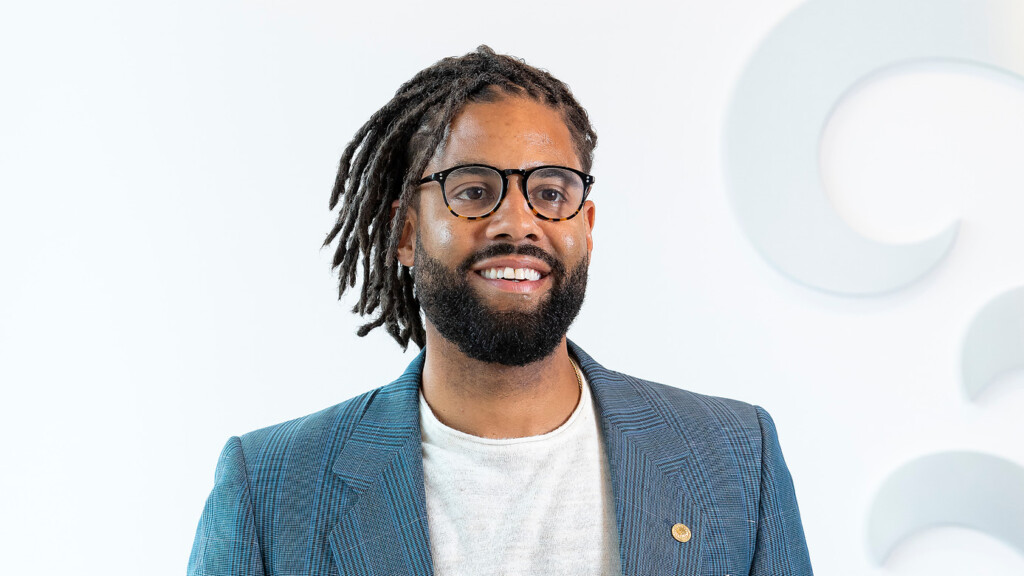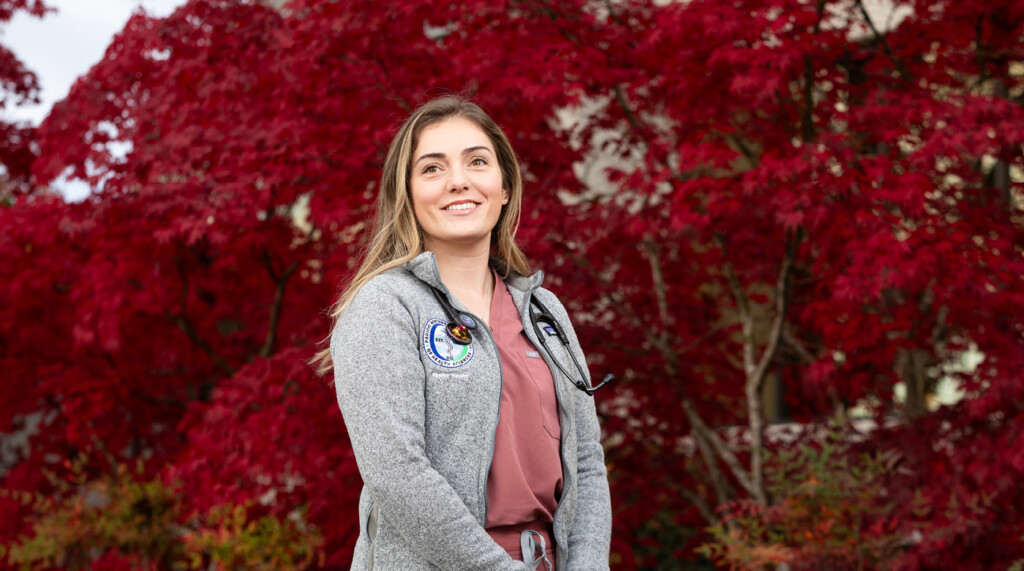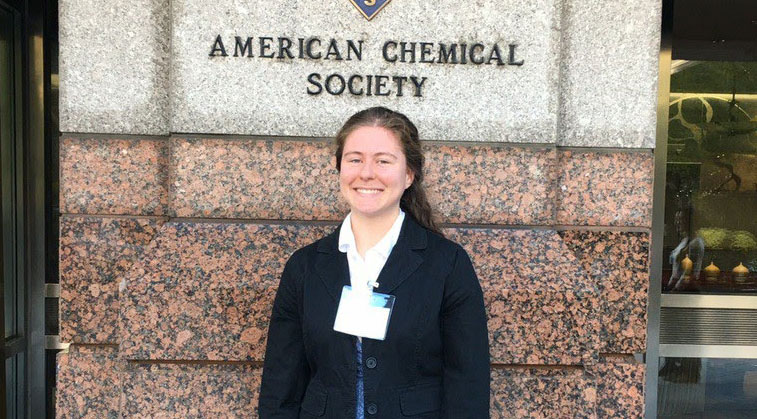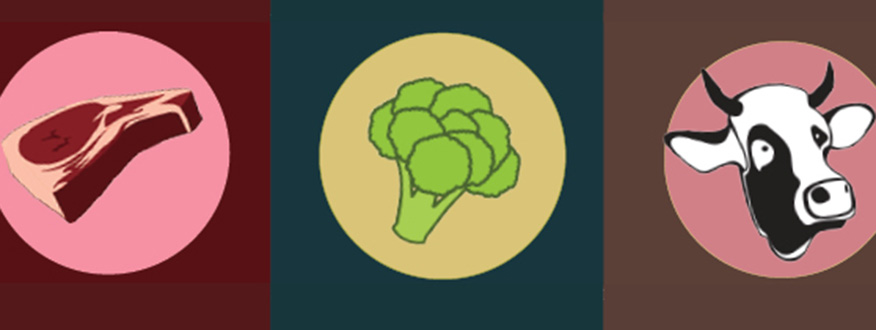Page 8 • (343 results in 0.028 seconds)
-

PLU graduate Aaron Bell ’04 learned early on that life is full of pathways — and that it was his responsibility to pursue his interests with passion to find his purpose. He grew up in Wisconsin where he was a standout student — an Eagle…
his responsibility to pursue his interests with passion to find his purpose. He grew up in Wisconsin where he was a standout student — an Eagle Scout who played the viola and oboe, along with tennis and other sports. He took a lot of AP courses. His mom gave him those early pushes and set a foundation to always seek knowledge. “She pushed on me the importance of academia,” Bell said. “She was a woman without a college degree, but she asked a lot of me.” Bell was a PLU Regent Scholar, earning four
-

Shelby Hatton (Murdock) ’17 always knew she wanted to become a doctor, but now that she’s in osteopathic medical school she’s still deciding on what kind of doctor. The challenge, she says, is that she’s enjoying every aspect of her studies. That’s no surprise, because…
? Going all the way back to elementary school, I was fascinated by the human body. Then I loved all my science courses in middle school and high school. By the time I got to college, pursuing a pre-med pathway felt like the best reflection of my interests. Plus, I’ve always really enjoyed helping people, so it seemed like a natural fit for me. Like many medical students, you earned a Master of Arts in Medical Sciences (MAMS) degree prior to enrolling in your doctoral program. What was that program
-

TACOMA, WASH. (June 27, 2019) — Dr. Jon Grahe’s reach extends around the globe as an open science ambassador. Nearly a decade ago, Dr. Grahe declared that he wanted to change how we study social science. Because of his tireless efforts, a new approach to…
taught research methods, statistics and capstone courses (e.g., senior research projects and theses) at Monmouth College and Pacific Lutheran University. During this time, he recognized that students could learn research methods and contribute to social science concurrently, with results disseminated beyond his classroom. Dr. Grahe’s desire to improve psychology students’ training and educational experiences, as well as the method in which social science data are collected, analyzed and discussed
-

At PLU, we have a 4-1-4 term system. This means that we have a four month fall semester, a four month spring semester, and a one month January term (or J-Term for short) in between, where you’ll fit in an entire semester of usually just…
opportunity to take a deep dive into a certain topic. Some students choose to take one of the new or innovative courses offered on campus that fits their interest. Others choose to take a required course that they might be less excited about because they can fit it into one month instead of a four month term. For either of these types of students, J-Term provides a nice break between the two, longer terms in the fall and spring. There are also opportunities for students to study away in January. There are
-

The Global Studies program at Pacific Lutheran University recently established a chapter of the Sigma Iota Rho Honor Society for International Studies. PLU is just the second university in Washington to become a member of the prestigious organization. Sigma Iota Rho works to advance the…
supporting my students’ research, publication, internships, etc. I hope our students will find it as helpful as I have,” said Shah. PLU students will have the opportunity to join the chapter once achieving junior standing. To be eligible, students must be majoring or minoring in global studies, have a grade point average of 3.3 or higher in all courses, and a grade point average of at least 3.4 in international relations courses. Nineteen PLU students have been accepted into the new chapter thus far. The
-
by Dana Bodewes, Instructional Designer As the end of the semester approaches, many students will inevitably begin to feel the pressure of impending papers, projects, and exams. While the prevalence of cheating varies and is difficult to measure, most faculty are concerned with ensuring the…
Academic Integrity and Honor Pledges Posted by: bodewedl / April 27, 2016 April 27, 2016 by Dana Bodewes, Instructional Designer As the end of the semester approaches, many students will inevitably begin to feel the pressure of impending papers, projects, and exams. While the prevalence of cheating varies and is difficult to measure, most faculty are concerned with ensuring the academic integrity of student work in their courses. Depending on the assessment, a variety of strategies can be
-

Aminda Cheney-Irgens is a smart, driven, and globally-minded Pacific Lutheran University senior who, like her peers, spent her spring adjusting to a new way of doing college. She’s learned to record Zoom lessons, sharpened her Google Docs skills, and misses the real-life campus interactions. She’s…
proximity to her grandparents, is resilient. She has big plans for her future (which include applying for the Fulbright again down the road). We connected with her for advice about how other Lutes can forge their own paths and how to gracefully weather unexpected detours. You have an interesting double major (chemistry and Hispanic studies). Tell us about that. I actually started out at PLU as an environmental studies major. My freshman year, I took awesome courses in religion and economics that taught
-
The selectee for this position will serve as a Physical Science Technician in the Radiological Control Office of PSNS and IMF. **This position will require successful completion of a 22-26 weeks of off-yard training in Norfolk, VA. A Continued Service Agreement for the off-yard training…
: successfully completed 2 years of study (or will have by entrance on duty) that included at least 12 semester hours in any combination of courses such as physical science, engineering, or any branch of mathematics, except financial and commercial math OR have a combination or equivalent combination of education and specialized experience the total percentage of which must equal at least 100 percent. GS-05: Have one year of specialized experience equivalent to the next lower grade (GS-04) in the Federal or
-

What goes into the production of a quarter pound burger? According to J.L. Capper in The Journal of Animal Science, 6.7 pounds of feed, 52.8 gallons of drinking water, 74.5 square feet of grazing, and the equivalent amount of energy it takes to run a microwave…
Philosophy from Penn State University. He regularly teaches courses in ethics, social and political philosophy, and business ethics, as well as courses in early modern philosophy, 19th and 20th century continental philosophy, and the philosophy of race. “Many have begun to consider seriously the ethics of producing food under such conditions and, indeed, the ethics of eating animals in general. I look forward to participating in a public debate about these issues in order to bring them more clearly into
-
A PLU education made a difference Three journalism graduates, from three decades, representing three Seattle media outlets shared insights on sports reporting during a Homecoming panel discussion Friday. Art Thiel ’75, Tom Glasgow ’81 and Chris Eagan ’95 spoke on how their PLU education helped…
majoring in journalism at PLU has helped him in unexpected ways. He said because there were few required courses to qualify for the major, he was able to take courses in art, history and economics. “A good reporter needs to know a little bit about everything,” Thiel said. “My PLU education served me well in that way, giving me a breadth of experience to cover stories that are different, unusual or beyond my field of endeavor.” Glasgow, who reports for KOMO Radio and is a Mariners’ pre- and post-game
Do you have any feedback for us? If so, feel free to use our Feedback Form.


